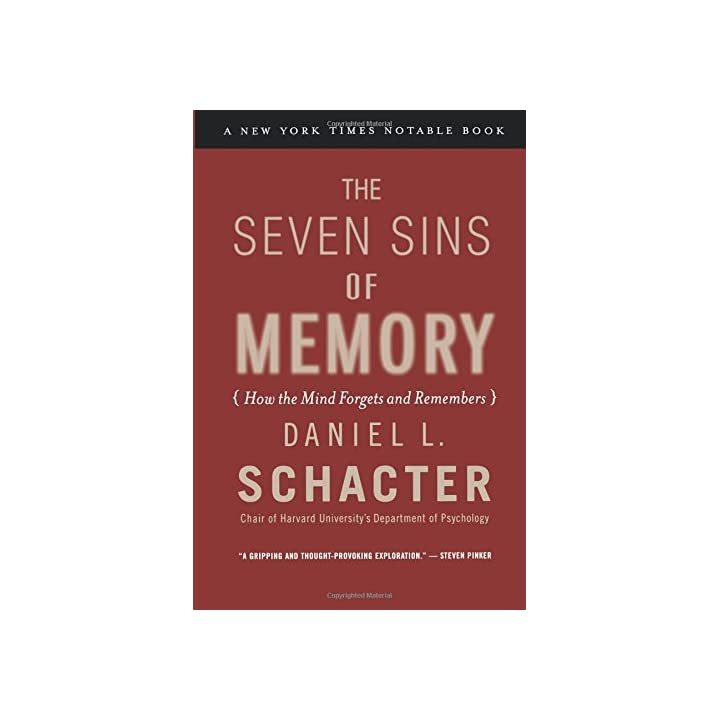The Seven Sins of Memory: How the Mind Forgets and Remembers

Daniel Schacter, former chair of Harvard University's Psychology Department and a notable memory researcher, wrote The Seven Sins of Memory: How the Mind Forgets and Remembers.
The book is based on the idea that "the seven sins of memory" are analogous to the Seven Deadly Sins, and that avoiding these sins helps improve one's memory. These characteristics of human memory, according to Schacter, are not inherently negative and serve a valuable role in memory. Persistence, for example, is one of the memory sins that can lead to post-traumatic stress syndrome. Persistence, on the other hand, is required for long-term memory and is hence vital.
In this fascinating study, Daniel L. Schacter examines what we might think of as memory failures—absent-mindedness, transience, blocking, misattribution, suggestibility, bias, and persistence—and proposes that these blunders are actually signs that memory is working properly. The Seven Sins of Memory provides a more nuanced understanding of how memory and the mind influence each other and shape our lives, drawing on vivid scientific research and creative literature, as well as high-profile events in which memory has played a significant role (for example, Bill Clinton's grand jury testimony).
This unique book, beautifully written, offers a fascinating fresh perspective on our brains and what we commonly refer to as our minds.
Author: Daniel L. Schacter
Link to buy: https://www.amazon.com/Seven-Sins-Memory-Forgets-Remembers/dp/0618219196









